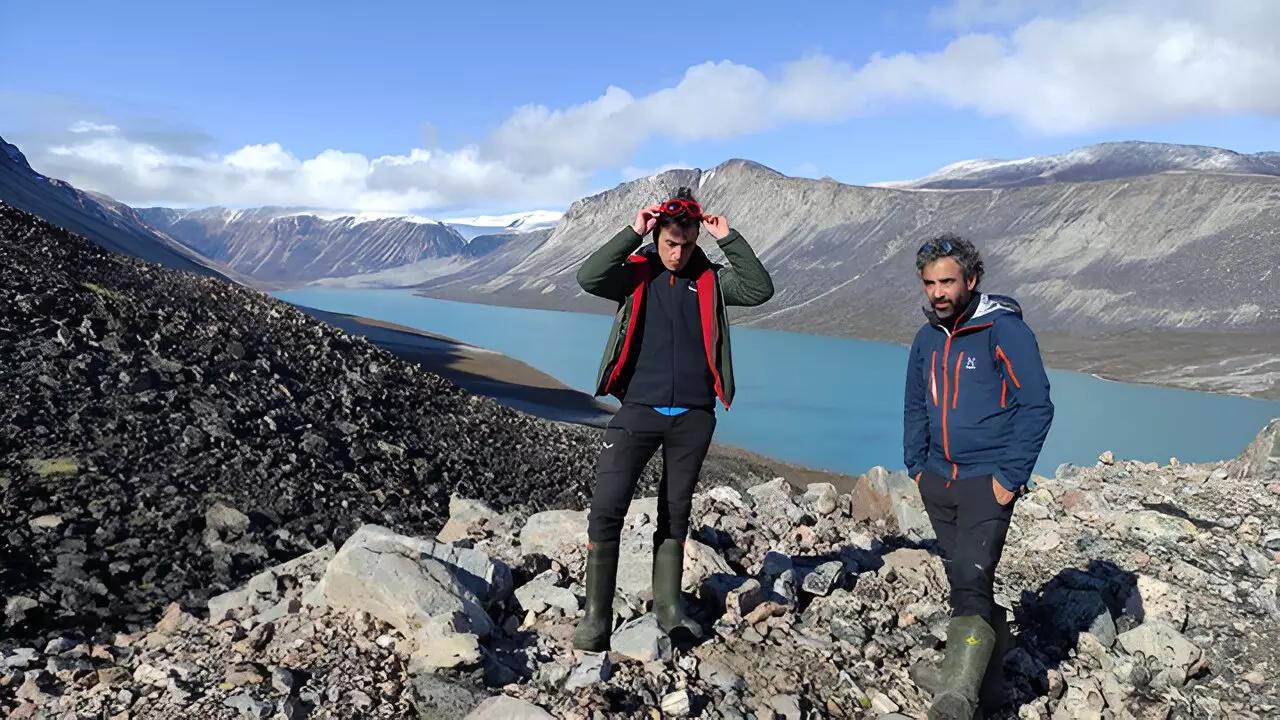The ongoing phenomenon of climate change is manifesting in increasingly alarming ways, most notably through the accelerated melting of the Greenland ice sheet. As recent research from the University of Barcelona reveals, the rate and frequency of extreme melting episodes have surged dramatically in recent decades. This intensification carries severe implications not just for the Arctic region, but for global weather patterns, including significant impacts on Europe.
The study highlights a stark comparison between historical and contemporary melting episodes. Between 1950 and 1990, the occurrence of extreme melting events was substantially less frequent, while the last decades have witnessed a two-fold increase. Critical years, such as 2012 and 2019, saw mind-boggling losses of over 600 and 560 gigatons of ice, respectively. To put this into perspective, these volumes translate to millions of Olympic-sized swimming pools, accentuating the gravity of the situation.
Analysis conducted by the Antarctica, Arctic and Alpine (ANTALP) research group underscores how these extreme episodes are attributed to a combination of forces—most prominently climate warming. The researchers, including notable figures from various international institutions, evaluated melt patterns from 1950 to 2022. They discovered that, on average, around 300 gigatons of ice are lost annually, largely driven by significantly warmer summer temperatures and altered atmospheric conditions.
A critical factor in the increased melting is the emergence of warmer and wetter air masses moving from northern latitudes. These atmospheric shifts create stagnation over Greenland, subsequently leading to heightened solar radiation absorption. This reduces the albedo, or reflective capacity, of the ice and snow surfaces, further propelling the melting process. Notably, melting has also been observed at higher elevations that previously remained stable, which initiates structural changes within the ice sheet itself.
The implications of declining ice volume in Greenland extend far beyond its immediate vicinity. According to the researchers, this substantial melting contributes to global sea-level rise and disrupts atmospheric circulation patterns on a planetary scale. This disturbance carries with it the potential to alter the climate of Europe, highlighting the intricate connections between distant geographical regions wrought by climate change.
Moreover, such alterations risk exacerbating socio-economic vulnerabilities, impacting ecosystems, and increasing climate extremes in proximate regions of the North Atlantic. As observed in the findings, roughly 50% of the recent melting events have been classified as extreme, especially in the coldest regions of the island. This statistic amplifies the urgency for comprehensive climate action and underscores a daunting future if current patterns persist.
In light of these troubling findings, researchers advocate for an immediate reduction in greenhouse gas emissions. They caution that without significant and swift actions, projected climate scenarios will lead to even harsher episodes of ice loss in Greenland, ultimately exacerbating the threats we already face from climate change. The stark data emerging from this comprehensive study reveals a critical need for both global awareness and action to forestall further deterioration of the situation.
The accelerating ice melt in Greenland serves as a poignant reminder of the interconnectedness of global systems and the pressing imperatives posed by climate change. Failure to address these challenges could usher in a host of environmental, economic, and social repercussions, underscoring the immediacy of collective action. Scientists remain hopeful that increased public awareness and responsiveness might pave the way for a more sustainable future.


Leave a Reply